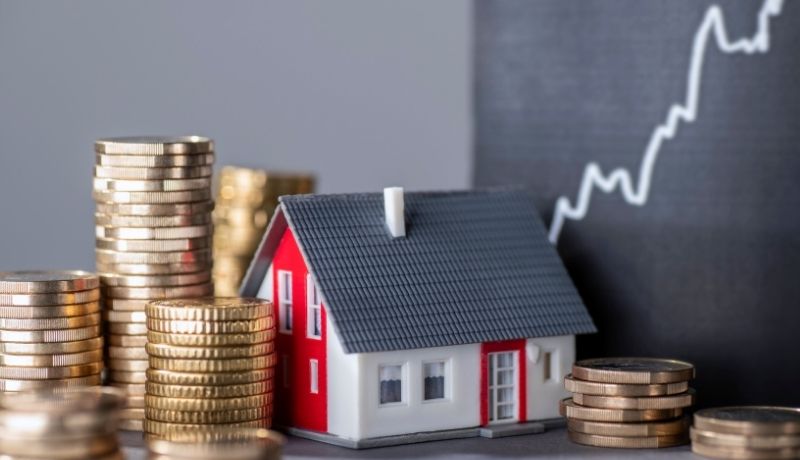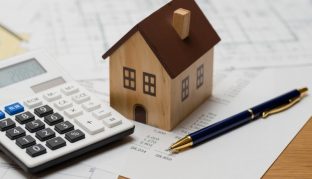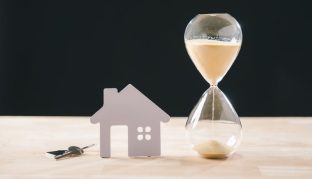The Real Homebuying Price: The Side Costs of Buying a House
14 November 2025 • 9 min read

See what our customers have to say about us
Key Takeaways:
- Buying a house in the UK goes beyond the selling price. There are side costs to include in the budget, divided into two categories: pre-completion and post-completion costs.
- Pre-completion costs include stamp duty, conveyancing fees, survey costs, mortgage fees, and estate agent fees.
- Post-completion costs include removal costs, utility setup fees, decor and furniture, insurance costs, council tax, shared spaces and service charges, maintenance costs, and parking fees.
- Planning the side costs is crucial to ensure funds are sufficient to complete the purchase.
What are the side costs of buying a house?
Most people focus on the listed selling price, but that’s not the only expense when buying a property. There are extra costs involved in completing the transfer of property ownership. If the average house price in the UK, as of September 2025, is £270,000, expect the cost of buying a house to be higher.
In this article, you’ll discover the side costs of buying a house, from the pre-completion to the post-completion costs. This will help you prepare financially so you can avoid surprises and delays as you go through the homebuying process.
Pre-Completion Costs of Buying a House
The pre-completion stage involves a series of legal fees and payments to various individuals, agencies, or firms. These include the mortgage lender, conveyancer, estate agent, etc.
The deposit is considered part of the property sales price, so it will not be included in this list. For the rest, here’s a list of the expenses you must prepare for.
Stamp duty
Stamp Duty Land Tax (SDLT) is a government tax imposed on property purchases in England and Northern Ireland. The payment of stamp duty averages £6,500 and varies depending on the property’s value, location and buyer’s status (e.g. first-time buyer, existing homeowner).
First-time homebuyers can benefit from the “First Time Buyers Relief”. It saves them from paying tax on the first £300,000 of the property. Anything lower than that would exempt you from paying stamp duty land tax. The government applies a 5% tax on property prices between £300,001 and £500,000, while those above £500,000 are exempt from the scheme.
The First-Time Buyers Relief makes the homebuying process more appealing to first-time buyers by making the purchase more affordable.
If you’re not a first-time buyer or the property costs more than £500,000, the thresholds are fixed at the following rates:
- 0% for properties under £125,000
- 2% for properties between £125,001 to £250,000
- 5% for properties between £250,001 to £925,000
- 10% for properties between £925,001 to £1.5 million
- 12% for properties over £1.5 million
Read more about the latest Stamp Duty Land Tax charges.
Conveyancing fees
The average conveyancing fees for homebuyers are between £1,100 to £2,000. This pays for the conveyancing services provided by licensed conveyancers or solicitors. The cost of conveyancing is like a transfer fee. It ensures the property title is legally and officially transferred under your name.
Conveyancing fees include several payments, including property searches, land registry fees, and contract drafting. Some firms offer fixed-fee conveyancing, while others charge based on the specific services provided. The amount depends on the complexity of the purchase and the property type. For instance, leasehold properties are more expensive than freehold ones.
Use a conveyancing fees calculator or get a quote from a firm to ensure you understand the payment details.
Learn more about conveyancing fees and the difference between legal and disbursement fees.

Survey costs
This expense is needed after the seller accepts your offer and before the contract is exchanged. This is different from a mortgage lender’s basic valuation.
A property survey involves a more thorough assessment of the property. The goal is to uncover any issues that might affect its condition and overall value. It is something you can use to negotiate the final price.
This survey comes in the form of a RICS Homebuyer Report, a Building Survey, or a similar document. This shows the property’s true condition. The price will vary from one surveyor to another, but the average cost is between £500 and £1,000.
Mortgage fees
A mortgage broker charges an arrangement fee to set up the mortgage deal. Sometimes it is included in the overall mortgage payment, alongside the interest rate. The price will depend on the amount borrowed, but you can expect it to be around £500 to £2,000.
There’s also the valuation fee, which costs around £250 (some lenders offer this for free). Sometimes this is added to the total mortgage amount, but be prepared to pay it separately, just in case.
Estate Agent fees
Real estate agents make the homebuying process easier, but it comes with a cost. Whether you’re buying or selling a house, you’ll need the services of an estate agent to make the process convenient and smooth. Some charge a percentage of the purchase price (1% to 3%). Other estate agents charge a flat fee between £2,500 to £5,000.
Post-Completion Costs of Buying a House
Once you’ve completed the buying process, you’re not yet done paying dues. There are still costs to cover, and it will likely continue as long as you’re the property owner. Here’s a list of the costs of buying a house after completion.
Removal costs
After all the legalities are done, you need to pay removal costs to move into your new home. While you can do this yourself, you’ll still spend on packing materials and moving transportation. Professional removal companies charge £300 to £1,500 – depending on the moving distance and the furniture you’ll move.
Utility setup fees
If the property doesn’t have utilities yet, there’ll be an additional cost after you own it. Setting up and connecting the electricity, water, gas and broadband will cost you a couple of thousand pounds. The true amount will vary depending on the property’s location. Of course, after that, you’ll have to include the utility bills in your monthly payments.
Decor and furniture costs
Buying new furniture and decorating the new home make the move even more exciting. This can cost you a couple of hundred or thousands, depending on how furnished the property is when you bought it.
Insurance costs
Home insurance will protect your newly bought property. Insurance claims will help you with any damages that are covered by your policy. This will typically cost you £300 a year, depending on the property price or value. It is your responsibility to pay for insurance as long as you’re the owner.
While you’re at it, consider getting building insurance if it applies to the property type. You can also get contents insurance to protect everything within the house. This is useful in covering items damaged by severe flooding or fire.
Council tax
Owning a property means you’ll be required to pay monthly taxes to the local council. The amount will depend on the property’s location and size. If you plan to rent out the property, the tenant can pay the tax. However, you must still pay income tax on the money you earn from the lease.

Shared spaces and service charge
If you own a property in a shared building (e.g. flat), you’ll have to pay a service charge for the upkeep and management of shared spaces in the building. This includes hallways, roofs, lifts, and other areas.
Maintenance costs
Over time, the property will go through natural wear and tear. You’ll have to pay for the property’s maintenance and repairs to keep it in good condition. This will make the property safe for occupancy and will keep you protected.
Parking fees
Some areas require a permit to be able to park on the street. One payment usually covers 6 months or a year. If you have a vehicle, secure a parking space so you don’t get into trouble.
Planning for the Side Costs of Homebuying
Buying a home requires you to be financially prepared, not just for the sale price but also for all the associated costs. While you don’t have to pay all the costs at once, they do add up over time.
Speak with your agent or conveyancer to understand more about these side costs. It is best to prepare early so you can meet payments as they come due. This minimises delays and ensures a smooth home-buying journey.
At Muve, one of our goals is to make the conveyancing process quick and easy for home buyers. You’ll enjoy full cost transparency and real-time progress reports, with options to use our upgrade service, Muve Lightspeed, which can help you exchange in 5 weeks (for freehold properties) to 8 weeks (for leasehold properties). Reach out to our team for more details about our streamlined, transparent conveyancing service. Get your fixed legal fee quote from Muve within a minute.
FAQs on Side Costs of Buying a House
As of September 2025, the average house price in the UK is £270,000. Since the cost of buying a house goes beyond the purchase price, you can expect to pay a higher amount than that. The exact amount will depend on several factors, such as the property’s location, conveyancing fees, legal costs, and transaction complexity.
Yes, there may be hidden costs when buying a house in the UK.
Being thorough with your due diligence will minimise the risk of hidden costs. By understanding the typical costs involved in the buying process, you can scrutinise quotations and payments. Feel free to ask your estate agent or conveyancing solicitor to ensure you’re paying the right fees.
Conveyancing costs can add up quickly, but you can manage them by comparing costs and choosing a conveyancing firm that’s known for speed and transparency.
Muve specialises in quick conveyancing processes and proactive case reporting. Combined with our digital-first approach and local expertise, we ensure homebuyers are kept up to date in real time, especially on progress reports and payments. Our initial quotation is detailed and does not have hidden costs. In the event of unforeseen legal requirements that require payment and were not identified at the point of quotation, homebuyers will be informed immediately.
You might also like
See what our customers have to say about us Trustpilot Key Takeaways: What Is ...
Conveyancing timelines for buying freehold properties in England take approximately 16 to 18 weeks. ...

